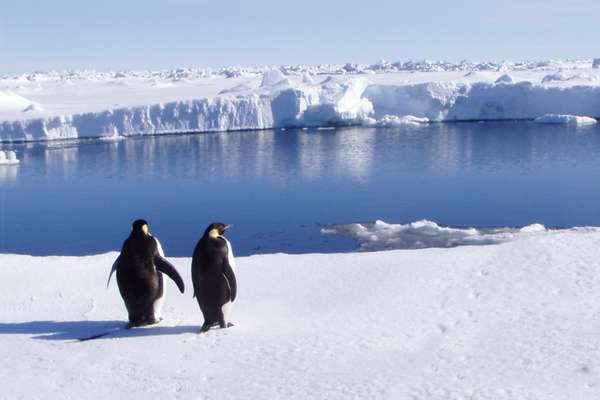Northwest Antarctic ice caps have already been actively melting for reasons unrelated to global warming in the recent past.

Such a conclusion was reached by scientists of the University of Tokyo, after examining the core of the Japanese Antarctic base “Sciowa”, according to the press service Visu.
Today actively engaged in the redevelopment of the West Antarctic Ice Sheet. The North Antarctic Ice Sheet, where the “Syowa” base is located, was considered to be relatively stable.
However, with the help of recently developed method of chemical analysis it was found that at some point in the past the cryga began to actively melt here on a large scale.
We were very pleased when we saw a previously unknown phenomenon of melting of the North Antarctic ice sheet near the “Syowa” station, and found that it is a phenomenon of the entire Antarctica – said the researchers.
These data were obtained by analyzing the differences between the two main isotopes of beryllium:
Berylium-10, which is the result of interaction between cosmic fluxes traveling to Earth and the planet’s atmosphere;
Beryllium-9, which is found in the rock formations.
Scientists have developed a method of retroactive analysis of small differences of these isotopes.
Later, applying the method to samples taken from Antarctic lakes, they found that the rapid melting occurred approximately from 3.5 to 4 thousand years ago.
During this period there was no warming of the atmosphere due to an increase in the amount of carbon dioxide, and it is believed that the melting was due to the fact that the warm sea water was approaching the coast of the Antarctic ice sheet through changes in gradients, – said the researchers.
It is known that changes in tides are closely related to low-latitude climatic phenomena such as the Pacific El Nino and it is believed that the melting of the cryogenic cover during this period was caused by changes in the equatorial region of the Pacific Ocean.
This suggests that such a phenomenon may also occur in the future – added the scientists.
Behavior of the Antarctic crustal globe on climate change is still largely unknown and it is necessary to continue research, using this new method – said the researchers.
We would like to remind you that it snowed in the area of the Ukrainian Antarctic station “Academician Vernadsky” in February.




